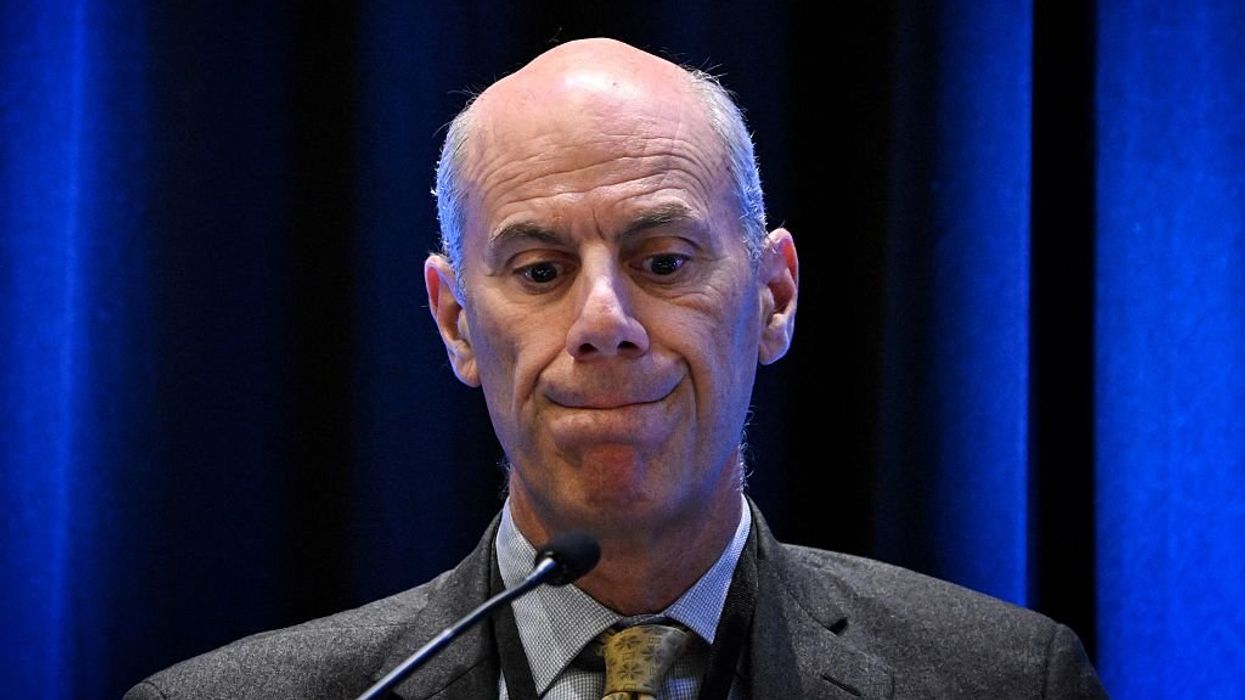
US District Court Judge James Boasberg (Photo by DREW ANGERER/AFP via Getty Images)

While the legislation is unlikely to survive in the Senate, it signals mounting frustration with meddlesome judges.
The No Rogue Rulings Act of 2025 passed the U.S. House in a 219-213 vote along party lines on Wednesday.
The bill would amend chapter 85, title 8 of the U.S. Code to prohibit a U.S. district court from issuing an injunction unless the injunction applies only to the parties of the particular case before the court.
Rep. Darrell Issa, the California Republican who introduced the legislation in February, noted that the Trump-endorsed bill "would impose important limits on nationwide injunctions, which activist Federal courts are weaponizing in an attempt to undermine President Trump's legitimate powers under Article II of the Constitution."
While the legislation will likely fail in the U.S. Senate, where a handful of Democrats would have to come on board in order to reach the 60-vote threshold, the passage of the bill in Congress nevertheless signals mounting frustration with judicial overreach, particularly by Democrat-appointed district judges such as:
The Congressional Research Service indicated in a March 28 report that the "Department of Justice had identified 12 nationwide injunctions issued during the presidency of George W. Bush, 19 issued during Barack Obama's presidency, and 55 such injunctions issued during the first Trump administration" as of February 2020.
'Each day the nation arises to see what the craziest unelected local federal judge has decided the policies of the government of the United States shall be.'
The CRS said there had already been at least 17 cases of national injunctions during the second Trump administration between Jan. 20 and March 27.
Stephen Miller, White House deputy chief of staff, is among the louder critics of this apparent effort by Democrat-appointed judges to prevent the execution of the president's agenda. He asked in the wake of one district judge's injunction, "Is there no end to this madness?"
"Currently, district court judges have assumed the mantle of Secretary of Defense, Secretary of State, Secretary of Homeland Security and Commander-in-Chief," Miller wrote last month. "Each day, they change the foreign policy, economic, staffing and national security policies of the Administration. Each day the nation arises to see what the craziest unelected local federal judge has decided the policies of the government of the United States shall be. It is madness. It is lunacy. It is pure lawlessness."
'It may be a timely issue for this president, but that does not make it partisan.'
The House Judiciary GOP noted that the No Rogue Rulings Act "limits activist judges' power and ensures policy decisions stay with elected officials, not unelected judges."
"No more district court activist judges silencing millions and hijacking the President's constitutional powers," wrote Rep. Brandon Gill (R-Texas). "We're shutting down the judicial coup."
While Democrats uniformly voted against the bill in the House and may do so again in the Senate, Issa made clear that activist judges and judicial overreach could be a problem for everyone eventually.
"In recent years, it has become glaringly obvious that federal judges are overstepping their constitutional bounds," Issa said on the House floor Tuesday, reported Politico. "This is not a partisan issue. It may be a timely issue for this president, but that does not make it partisan."
It appears Democrats are thinking short-term, content to let judges set federal policy.
"Here's a message: if you don’t like the injunctions, don’t do illegal, unconstitutional stuff," said Rep. Pramila Jayapal (D-Wash.). "Nationwide injunctions play an essential role in protecting our democracy and holding the political branches accountable."
"When a ruling goes against the Administration, injunctions work as a check and balance against an administration bent on bullying the bench to its will," said Maryland Rep. Glenn Ivey (D). "This isn’t baseball; it can be a matter of life and liberty versus incarceration and impoverishment and should be a matter for serious and thoughtful consideration."
Like Blaze News? Bypass the censors, sign up for our newsletters, and get stories like this direct to your inbox. Sign up here!